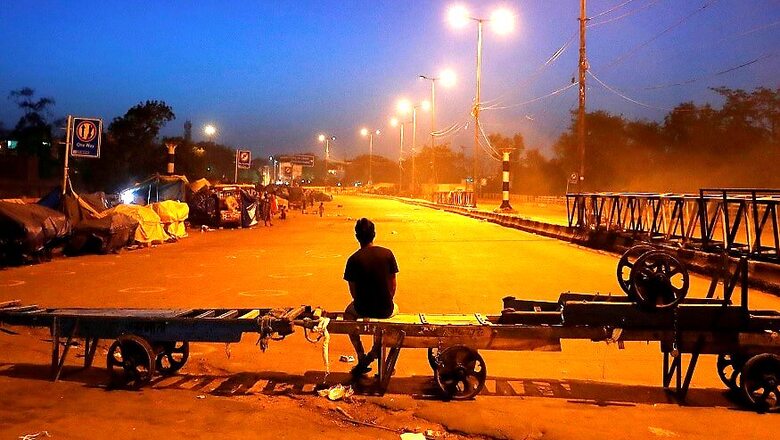
views
Karnataka and Tamil Nadu became the fourth and fifth states on Monday to opt not to ease the lockdown restrictions till May 3 in line with the Centre’s guidelines to gradually reopen the country and reboot the economy starting Monday. Telangana, Punjab and Delhi had on Sunday announced they would not give any relaxations from the lockdown.
The governments of Karnataka, Tamil Nadu and Punjab have said that the curbs will be implemented with full force till the lockdown remains in effect, while the Delhi government said it would review the situation after one week. The number of coronavirus cases in Delhi has passed 2,000, while Tamil Nadu has also been hit hard and has reported nearly 1,500 cases.
The K Chandrasekhar Rao government in Telangna, on the other hand, has decided to extend the complete lockdown in the state till May 7, becoming the first state to do so.
The chief ministers said that after reviewing the ground situations, they have decided not to grant relaxations and said the need is to intensify containment measures to check the spread of the virus.
The decision came as the coronavirus cases across the country crossed the 17,000-mark on Monday, after registering the biggest single-day spike with over 1500 cases. The death toll stands at 543, according to health ministry data.
The states' differing approach comes as the Centre eases a number of restrictions on economic activities and services, in what will be a stiff test of India’s handling of the pandemic, as the government balances how to control the spread of the virus with sending Indians back to work.
The central government had imposed one of the strictest lockdowns in the world to curb the virus on March 24, but will ease some of the restrictions gradually starting Monday after 26 days as the drastic measures have sent the economy into a tailspin and hit the poorest sections hard.
While the health ministry data suggests that the rate of new infections has tapered, experts have said it is hard to gauge much from the data as India has still only tested a limited proportion of its population, despite testing being expanded in the last fortnight.
Health minister Dr Harshvardhan, at a videoconference with counterparts of G20 nations, said that as a result of the lockdown the doubling rate for infections has gone from 3.4 days on March 17, to 4.4 days on March 25, and is currently about 7.4 days.
Among the activities that resumed on Monday are all agriculture and horticulture-related activities because of the approaching harvest season and the potential of bumper wheat crops, plantation work for tea, coffee and rubber, and industries in rural areas, Special Economic Zones and industrial townships.
Economic activities made functional includes non-banking financial corporations and micro-finance institutions that have now been marked as essential, while services like electricians, plumbers and repairmen will also be permitted.
Construction, in rural areas, of water supply and sanitation, and laying of power lines and telecom optical fibres and cables are also allowed, according to the home ministry.
The re-opening, albeit in a limited manner, will be good news for the lakhs of unemployed migrant workers and daily labourers who had been left jobless by the ban on activity under the lockdown.




















Comments
0 comment